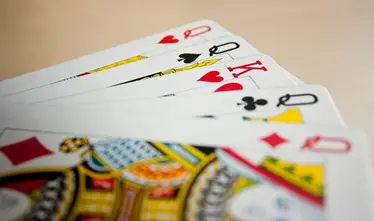Last updated on April 17th, 2023 at 12:59 am
If you’re a poker player, you’ve likely heard your share of tall tales and misinformation about the game. But is there such a thing as “bad” poker hands? Surprisingly enough, many misconceptions come down to context and strategy rather than an inherent quality associated with specific card combinations. In this article, you will learn some common myths regarding bad poker hands and discuss strategies for using them effectively in various situations. By the end, you should better understand how different approaches can maximize your chances of winning, regardless of what cards are dealt.
Myth 1: Pairs Are Always Weak Hands
This is false. A pair can be powerful in certain situations depending on what other players at the table have. For example, if you are playing no-limit Texas Holdem online and have a pair of twos with the flop showing three sevens, your odds of winning increase significantly as your opponents may be trying to outdraw the board.

Myth 2: High Cards Don’t Matter
High cards can be very powerful in poker, especially when combined with other strong hands, such as a flush or straight draw. For instance, if you are holding an ace and king (AK) and your opponent is holding a queen and nine (Q9), this gives you an advantage due to having a higher top card. Similarly, if two players are in the pot and one holds AK while the other has QJ, then the person holding AK has a higher chance of winning.
Myth 3: No-Limit Texas Hold’em Is Always the Best Game
No, this isn’t always true. While No-Limit Texas Hold’em is an excellent game for experienced and novice players, there may be better choices in some circumstances. For instance, if fewer than five players are at the table, it may be better to switch to Pot Limit Omaha, as this allows for larger pots and more action.
Myth 4: You Should Always Play Every Hand
This is not the case. It’s a good idea to fold hands that are unlikely to succeed to conserve your poker chips and reduce losses. For instance, if you are dealt a 2-7 off-suit (2 unsuited cards with values of two and seven), then this is typically considered a weak hand that should be folded unless there is an exceptional situation, such as a large pot or flush draw on the board.
Myth 5: Any Pair Can Win a Hand
Not always. While having a pair gives you a better chance of winning, it is still essential to consider the board and other players’ poker hands when deciding what action to take. For instance, if your opponent has three-of-a-kind with a higher rank than yours, then it is likely that they will win the hand even if you have the same pair.

Myth 6: Suited Connectors Are Always Good Hands
This is not true. Although suited connectors can be powerful in certain situations, they are also susceptible to being outdrawn by stronger hands such as flushes or straights. Therefore, assessing the situation before making decisions based on this type of hand is crucial.
Myth 7: Small Pairs are Always Weak Hands
This is a common misconception. While small pairs (2-2, 5-5, etc.) may not be as strong as higher-ranked ones, they can still be used effectively if played correctly. For instance, if your opponent has raised and you have a small pair in the hole, it’s worth considering calling their bet, as this gives you a chance to make a set on the flop and win the hand.
Myth 8: Bad Players Play Every Hand They’re Dealt
Not necessarily true. Even bad poker players must assess situations before deciding whether or not to play a particular hand. If they’re dealt a weak one, then it’s more likely that they will fold rather than waste money trying to make something out of nothing.

Myth 9: It’s Always Better to Slow-Play Your Strong Hands
It is another common misconception. While slow playing can be advantageous in certain situations, it can backfire in others. For instance, if your opponent has a strong hand, they may be more likely to bet or raise as they have the initiative, and you are unlikely to re-raise them on the turn or river when your cards have improved. Therefore, assessing each situation carefully is vital before deciding how to play your hand.
Poker hands are a complex game, and the players who can navigate them successfully will always be ahead of the pack. Understanding common misconceptions about hand strength is crucial in learning how to read the game. We debunked a few myths in this post, and hopefully, you’ll have picked up some pointers on how to maximize your winnings through understanding game dynamics better–drawing out opponents, providing small bluffs, etc. Remember that poker is ultimately a game of skill, meaning that the more you practice, the better off you’ll be. So why not put yourself ahead of the competition by trying out GGPoker? It’s easy to sign up and start playing–plus for those new to poker, downloadable guides are available, which provide an excellent starting point for many different strategies and variations. You, too, can be part of this vibrant online community and join in on an adventure with one of the greatest gambling games ever created–so don’t wait any longer. Head over to GGPoker today!
Discover more from TechyGeeksHome
Subscribe to get the latest posts to your email.









